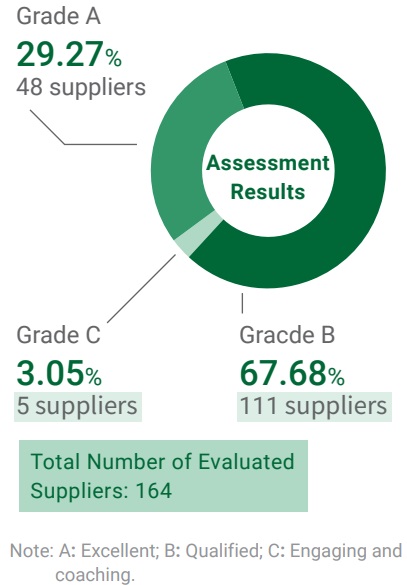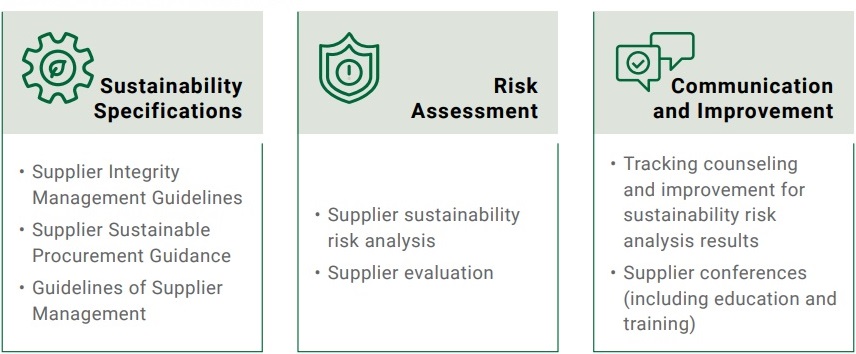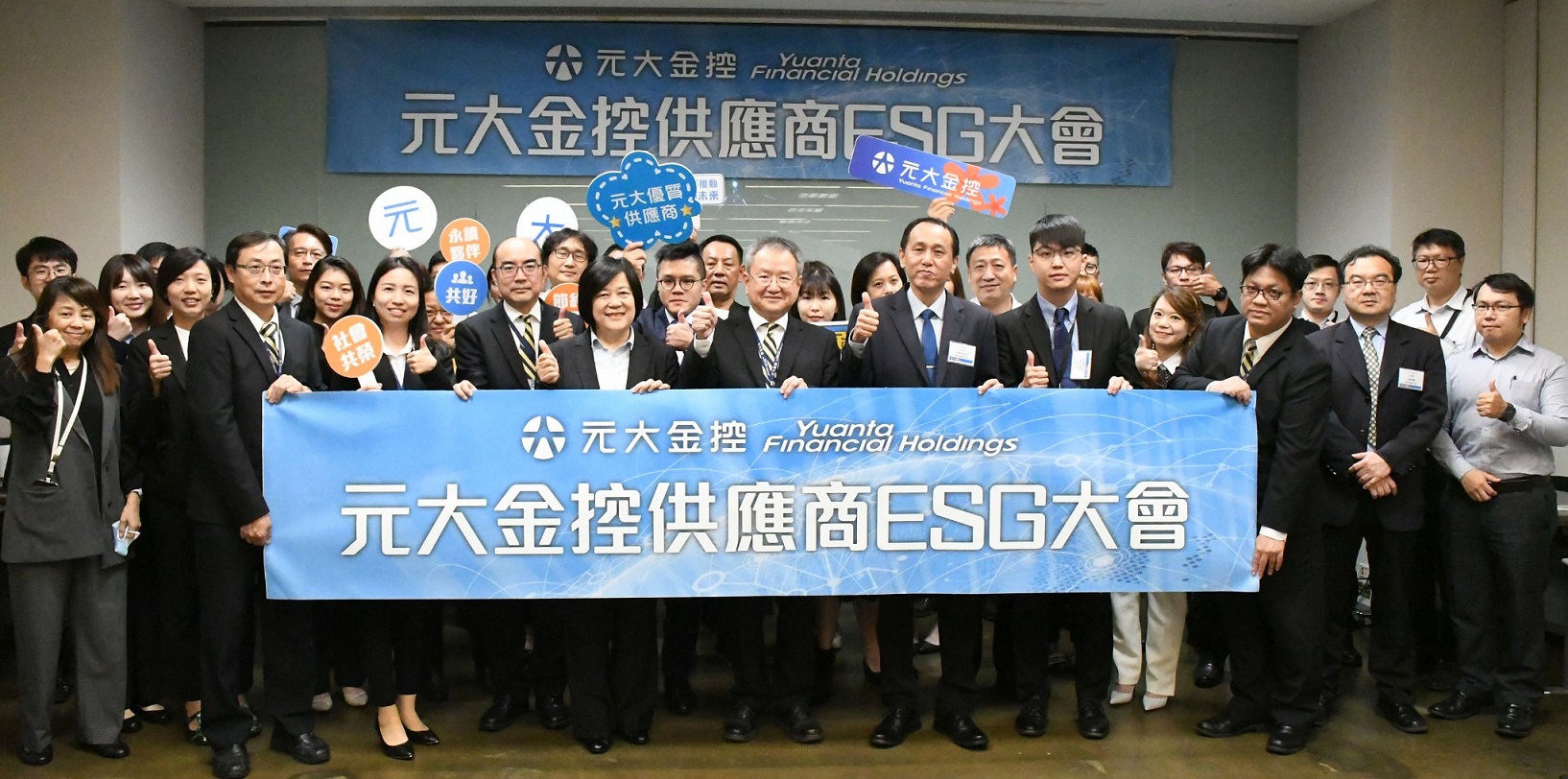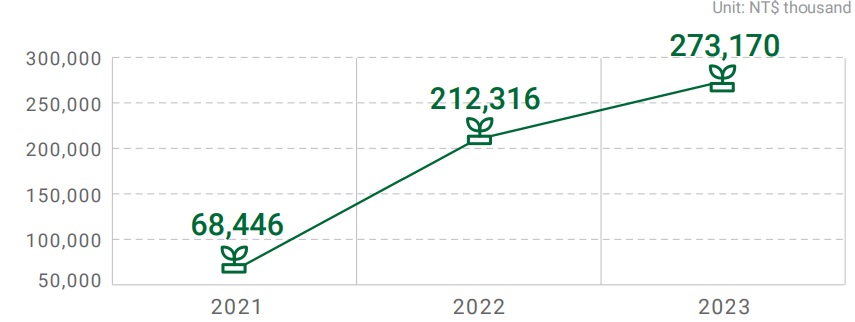While the Company focuses on the growth of the Group’s business, we also strictly implement procurement risk control and responsible procurement. We have invited suppliers to join sustainable action to create a resilient and sustainable future by promoting sustainable supply chain management. This year, 100% of suppliers with contractual relationships met our sustainability standards. In addition, we continue to screen and evaluate new and existing suppliers according to the “Key Points for Procurement Operations” and ESG (environmental, social, and governance) three dimensions that was established internally. At the same time, we consider the conditions of bribery-related Judicial Yuan record, the size, professionalism and experience of the suppliers, and acquisition of international standards, etc., and also conduct terrorism financing checks on major suppliers of procurement amount of NT$25 million or more. Only those who pass the checks become qualified suppliers of the Company.
Sustainable Procurement DeclarationSuppliers who sign contracts with us, in accordance with the company’s “Procedures for Integrity Management and Guidelines for Conduct”(hereinafter referred to as “Conduct Guidelines”), are required to comply with the terms and conditions of the “Integrity Management Guidelines” and “Conduct Guidelines”. In addition, to facilitate the evaluation of procurement contracts with suppliers, the Company conducts supplier management checks when suppliers provide their quotation.
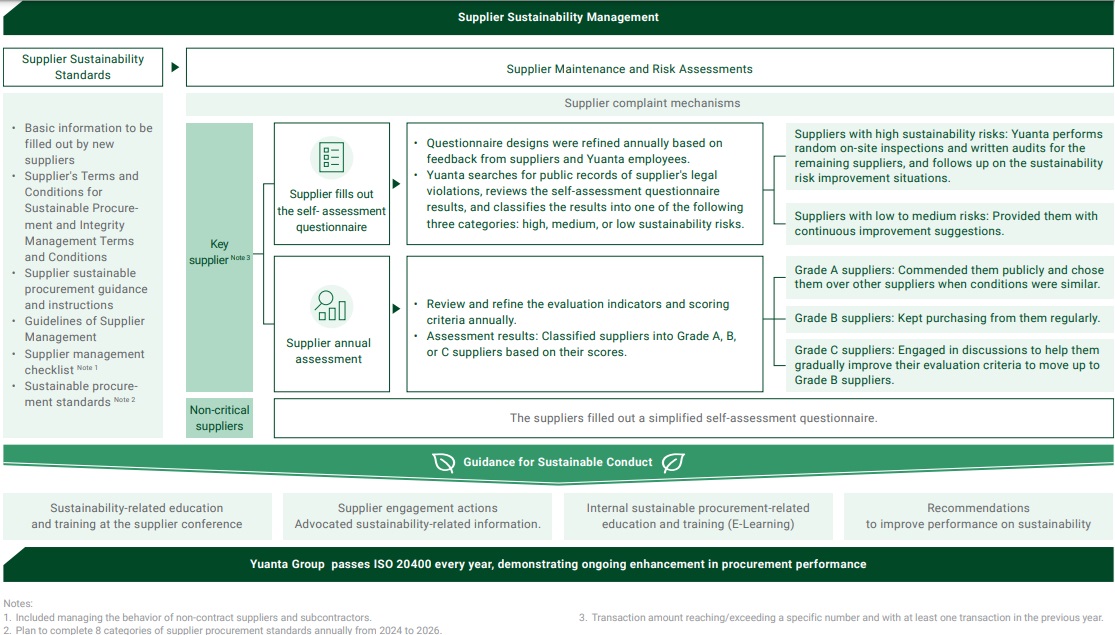
To ensure product and service quality and effectively control operating costs, Yuanta requires its suppliers adhere to the Group’s integrity management policies
Integrity Management Guidelines
Procedures for Integrity Management and Guidelines for Conduct
The Company has established a comprehensive supplier feedback and complaints process to provide affected stakeholders with avenues for redress and to assist the Company in continuing to improve sustainable procurement practices. The cases will be handled with a high degree of confidentiality; the privacy of the parties involved will be protected; and, impartiality and fairness will be maintained during the investigation of the case.
- Types of cases received by the Feedback and Complaints Channels: cases related to integrity management, labor rights, environmental protection, procurement processes, and procurement transactions.
- Feedback and Complaints Channels:
Stakeholder communication channels are available (link below)
https://www.yuanta.com/EN/ESG/Stakeholder-Engagement/Contacts - The Company will encourage stakeholders to use these channels to provide feedback or concerns by engagement.
 元大金控
元大金控

